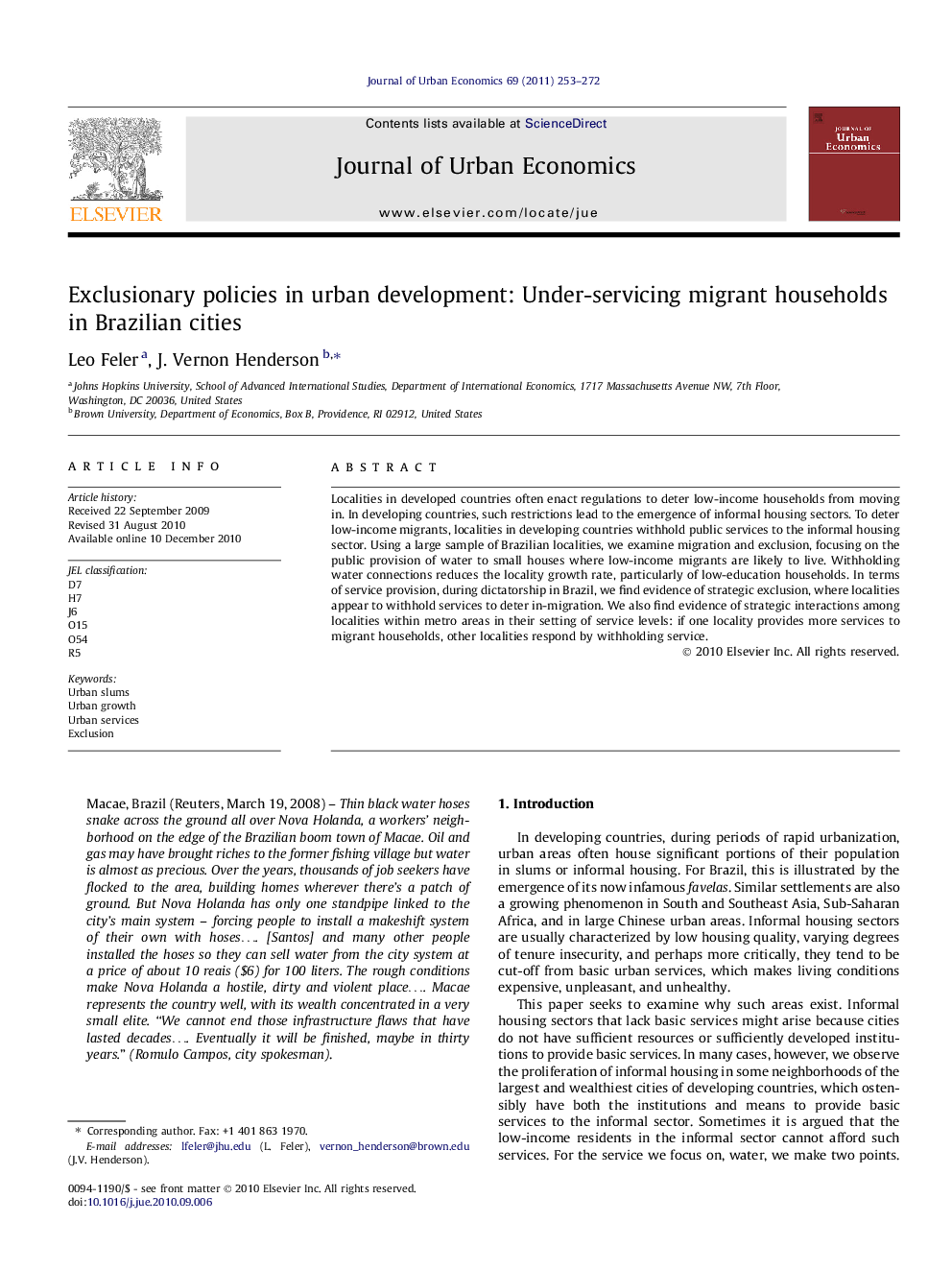| Article ID | Journal | Published Year | Pages | File Type |
|---|---|---|---|---|
| 971838 | Journal of Urban Economics | 2011 | 20 Pages |
Abstract
Localities in developed countries often enact regulations to deter low-income households from moving in. In developing countries, such restrictions lead to the emergence of informal housing sectors. To deter low-income migrants, localities in developing countries withhold public services to the informal housing sector. Using a large sample of Brazilian localities, we examine migration and exclusion, focusing on the public provision of water to small houses where low-income migrants are likely to live. Withholding water connections reduces the locality growth rate, particularly of low-education households. In terms of service provision, during dictatorship in Brazil, we find evidence of strategic exclusion, where localities appear to withhold services to deter in-migration. We also find evidence of strategic interactions among localities within metro areas in their setting of service levels: if one locality provides more services to migrant households, other localities respond by withholding service.
Related Topics
Social Sciences and Humanities
Economics, Econometrics and Finance
Economics and Econometrics
Authors
Leo Feler, J. Vernon Henderson,
